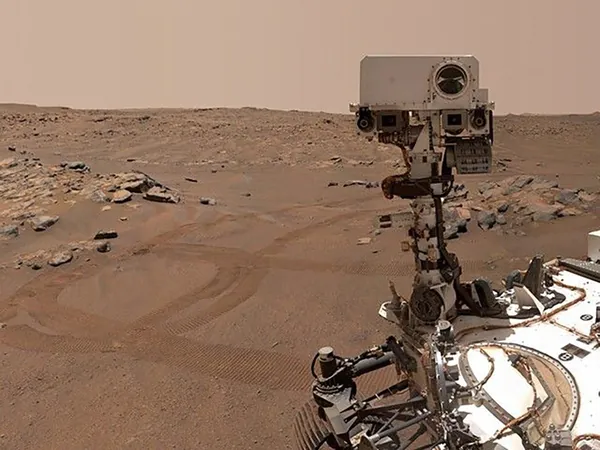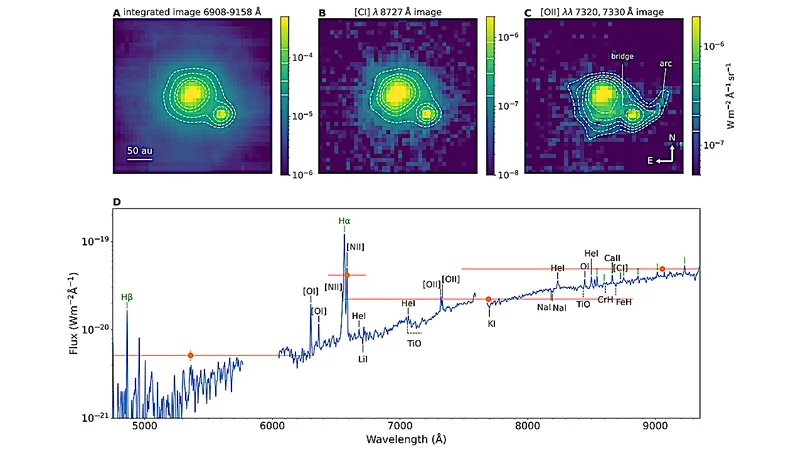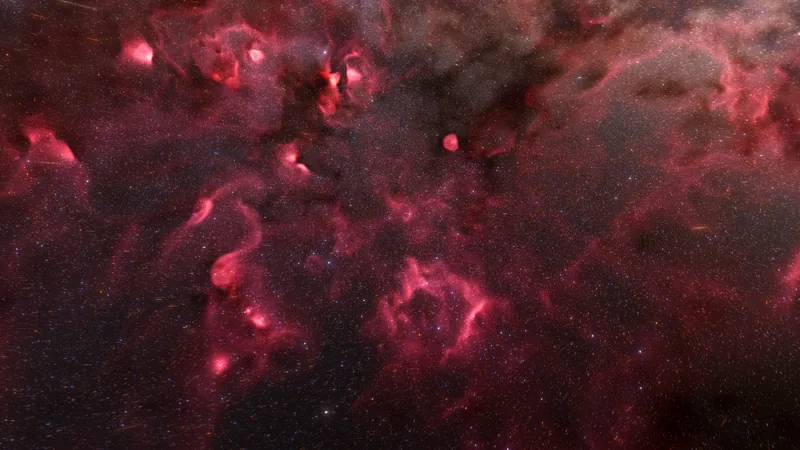
SKA Observatory's Data Storage Revolution: Global Centers to the Rescue!
2025-09-20
Author: Michael
Unleashing the Universe's Secrets
The highly anticipated SKA Observatory is on the horizon, but a colossal challenge looms before it: how to manage and store the staggering volumes of data it will gather from the cosmos. Enter global data centres, ready to tackle this monumental task!
What is the SKA Observatory?
The SKA Observatory is set to be the world’s most powerful radio telescope, strategically positioned at two pivotal sites: one in Australia and another in South Africa. By focusing on the Southern Hemisphere, these locations will capitalize on crystal-clear views of our Milky Way—offering a unique vantage point for astronomical research.
A Data-Collecting Powerhouse
The Western Australia site will boast over 131,000 distinctive Christmas-tree-shaped antennas, while South Africa will feature 200 massive dish antennas—all working in unison to capture a multitude of cosmic signals. Annually, this groundbreaking observatory is expected to churn out around 600 petabytes of data, including ethereal radio signals and mysterious fast radio bursts.
Future Research Catalyst
This treasure trove of data collected daily will lay the groundwork for revolutionary research in astronomy. As the first batch of data is projected to be available in 2027, with full-scale operations commencing in 2029, the SKA Observatory is poised to transform our understanding of the universe.
Canada Joins the Cosmic Quest
In a significant move, Canada joined the SKA Observatory project in 2024, launching the development of a dedicated data centre on Canadian soil. This facility, known as CanSRC, will be North America's exclusive hub for storing and processing data from the SKA Observatory.
A Network of Global Data Centres
As the SKA Observatory gears up for action, similar regional centres—termed SKA Regional Centres (SRCs)—will likely spring up worldwide. These centres will ensure that valuable astronomical data is readily accessible for researchers across the globe, ushering in a new era of space exploration!









 Brasil (PT)
Brasil (PT)
 Canada (EN)
Canada (EN)
 Chile (ES)
Chile (ES)
 Česko (CS)
Česko (CS)
 대한민국 (KO)
대한민국 (KO)
 España (ES)
España (ES)
 France (FR)
France (FR)
 Hong Kong (EN)
Hong Kong (EN)
 Italia (IT)
Italia (IT)
 日本 (JA)
日本 (JA)
 Magyarország (HU)
Magyarország (HU)
 Norge (NO)
Norge (NO)
 Polska (PL)
Polska (PL)
 Schweiz (DE)
Schweiz (DE)
 Singapore (EN)
Singapore (EN)
 Sverige (SV)
Sverige (SV)
 Suomi (FI)
Suomi (FI)
 Türkiye (TR)
Türkiye (TR)
 الإمارات العربية المتحدة (AR)
الإمارات العربية المتحدة (AR)